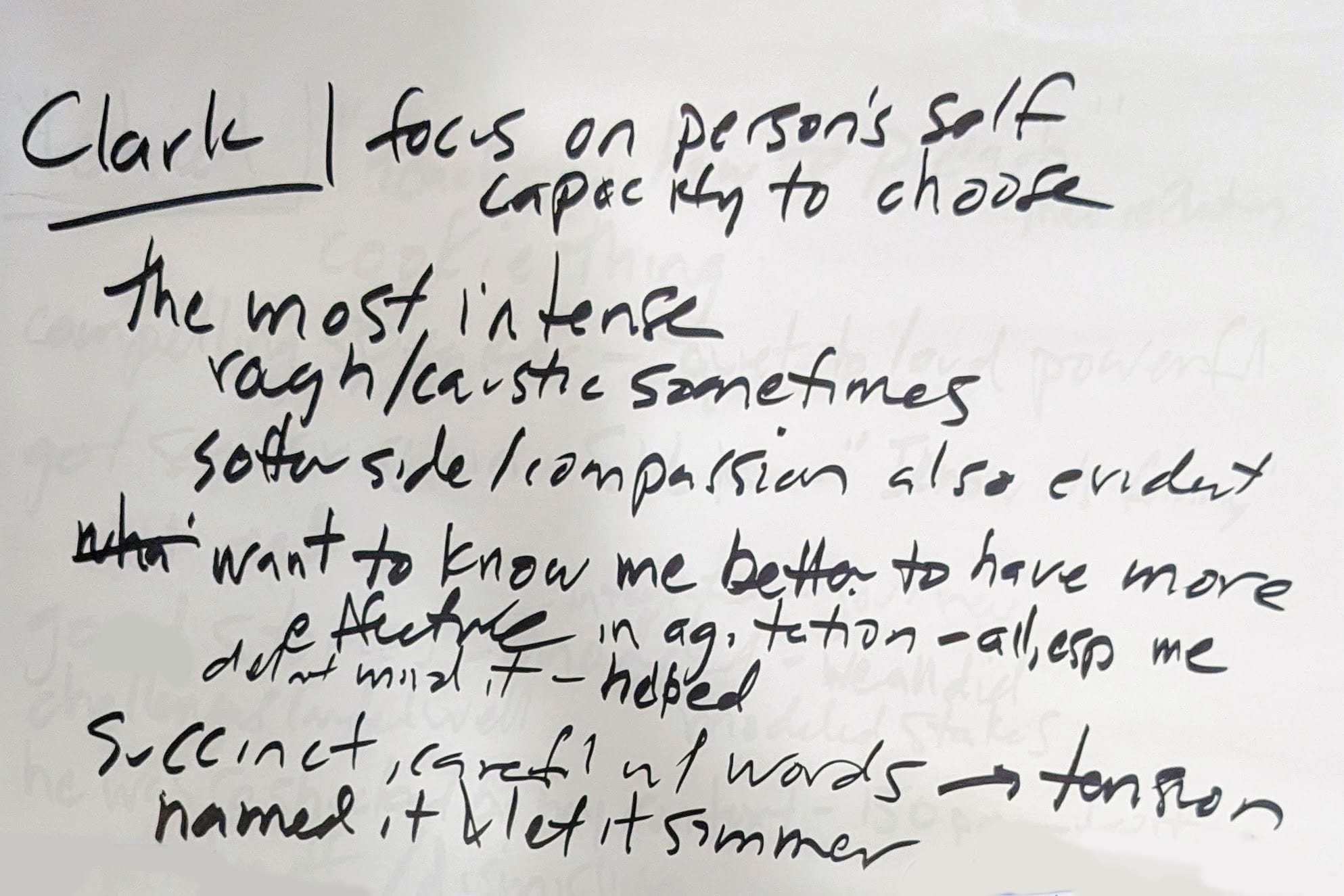agitation and prayer

Las week was an out-of-the-ordinary week. I traveled to northwest Minnesota to help train pastors in faith-based community organizing. It was a 4-day intensive training—intensive for us trainers as well as participants. I for one had never trained so much in a short period of time. I was also training on topics I’d never trained on before.
And more, intensity is the nature of community organizing training. It’s not just about delivering the content. Trainers get into participants’ guts and uncover what’s holding them back from being (more) powerful leaders. Trainers do this through what we call “agitation”—naming in the training room a vision for participants’ greatness and their self-sabotaging or values-denying behaviors or attitudes. This creates a great deal of tension in the room for everyone, and especially for the one participant that I, for example, am agitating.
It also created a great deal of tension for me. I was up at 4am, 3am, and 2am the mornings of our trainings, sick with anxiety, going over and over what and how I would or did do and say, trying to imagine and anticipate how the participants I planned to agitate would respond.
I should say, I took this on willingly, because I want to become a better trainer and a better organizer. I divide my own pastoral career into before and after I participated in community organizing training. I’m grateful to my agitators. And because I believe deeply in the work for justice, I love developing leaders, and I want to change my denomination.
Integrating this organizing work and contemplation was a big part of why I wanted to be part of the Living School. And I share all of the above to give context to my reflections on how I experienced that integration this week.
Firstly, I did not have much time for contemplative practice. Some of our days were 12 hours long. During breaks and after the day ended we trainers were evaluating each others’ performance and preparing for trainings to come. I did centering prayer two or three times.
I also lifted weights in the hotel gym, because there’s no way to think adrenaline out of the body, only work it out. As I reflect now I suspect this is/was a contemplative practice for me. Headphones in, listening to music (itself a long-time oasis of stillness and solitude for me), and pushing my body—it certainly helped to center me.
My centering prayer, on the other hand, was ridiculously full of distraction and produced little calm. Which does not make me doubt the value of it. God was fully present even as I struggled to be.
Secondly, before the training, a training colleague and I drove together from the airport. During the hour-long ride, something he said triggered this spreading calm within me. I can’t remember now what he said. But I knew—and knew that I knew—that contemplation was my greatest asset in training and agitation.
This calm and deep knowing eluded me at 2am, and I have to say, it wasn’t just that I didn’t feel it again, I didn’t even remember it had happened Still, the feedback my training colleagues gave me was they’d never seen me train better. Participants said I was very tough but right, and by the end, they were asking for my feedback. One training colleague saw my strength in how present I was with participants—a testament to that earlier epiphany and to how years of contemplation (”deep listening not deep ignoring”) has expanded my capacity to be present to others.
Last week showed off what Carmen Acevedo-Butcher said:
“…we can also think of our work as balancing out our prayer, and then it all being prayer is the point. … They're always obliterating anything binary. Ora et labora, that and, they're really saying it's all together, it's all prayer, it's all work. So they're always transforming our categories.”
It was an out-of-the-ordinary week. My categories were transformed. The lines between community organizing and contemplation were deeply blurred. Maybe it really is all prayer.

